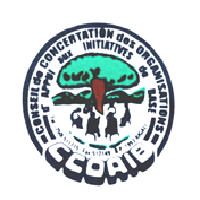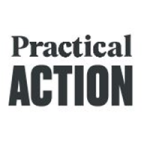The “Conseil de Concertation des Organisations d’Appui aux Initiatives de Base” CCOAIB is an Umbrella organization of 40 Rwandan local NGOs in development. It serves as a framework of exchange, consultations, dialogue, negotiation, and solidarity.
Website: https://ccoaib.rw/
TERMS OF REFERENCE (TOR):
Consultancy services to conduct an assessment of crop commercialization in Rwanda: opportunities, challenges, and barriers to the commercialization and marketing of intensified crops.
Profile CCOAIB
CCOAIB (Conseil de Concertation des Organisations d’Appui aux Initiatives de Base) is an umbrella organization established in 1987 that supports national non-governmental organizations (NGOs) focused on development. It was granted legal personality No. 103/11 on September 7, 2004, and currently comprises 43 member organizations operating across all 30 districts of Rwanda. Over 70% of these members are actively engaged in agriculture and livelihoods, with a particular emphasis on supporting small-scale farmers and community-based organizations. With 37 years of experience, CCOAIB plays a crucial role in monitoring the decentralization process and influencing public policy on issues such as agriculture, climate change, governance, and access to finance. The organization conducts research to inform evidence-based advocacy, facilitating the development of legal frameworks that enhance citizen participation in their own development. Its significant expertise in climate resilience, rural livelihoods, and governance particularly focuses on empowering disadvantaged populations, including women and youth.
Description of the consultancy assignment
CCOAIB, in collaboration with Never Again Rwanda and four other organizations, has established a consortium to implement the program titled “Civil Society and State Engagement on Public Policies for Socioeconomic Transformation (CS Engage Dufatanye).” This initiative aims to empower Rwanda’s civil society to engage effectively in policy advocacy and drive change in areas outlined in the National Strategy for Transformation.
In this context, CCOAIB is implementing the project “Unlocking Market Opportunities for Intensified Crops in Rwanda,” which aims to identify and address the barriers to commercialization faced by farmers of intensified crops, while also engaging policymakers to develop sustainable market strategies. The project will conduct a comprehensive assessment of three key crops which are maize, rice, and Irish potatoes. This will involve a value chain analysis across various agro-ecological zones in Rwanda to evaluate the current market landscape, identifying both opportunities and challenges in the marketing of these crops. The assessment will specifically focus on understanding opportunities, challenges and barriers to market access and pinpointing areas for improvement, particularly for different farmer groups, cooperatives and in particular youth, and women, and how these factors impact their livelihoods. The findings will be validated and shared with policymakers and stakeholders to support informed decision-making and improve market access for agricultural producers.
Ultimately, it seeks to promote informed decision-making that boosts agricultural productivity and improves market access for agricultural producers. The effort contributes to the modernization of agriculture, ultimately leading to significant enhancements in the livelihoods of local communities.
Objectives of The Consultancy work
Main Objective
The consultancy aims to assess the opportunities, challenges, and barriers to the commercialization of intensified crops in Rwanda by conducting a value chain analysis, identifying marketing opportunities and obstacles, and providing actionable recommendations to improve market access for farmers while developing sustainable strategies for agricultural products.
Specific Objectives
- Assess the current value chains and market frameworks for intensified crops (rice, maize, Irish potatoes) and identify opportunities and key barriers to their commercialization.
- Determine the opportunities and challenges faced by farmers in accessing advantageous markets for their agricultural produce.
- Analyze specific obstacles that hinder effective marketing and commercialization of intensified crops.
- Assess the capacity of civil society organizations, including farmer groups and NGOs, to support the commercialization of intensified crops.
- Develop actionable recommendations to enhance market access for agricultural producers, including strategic suggestions for advocacy, capacity building, and policy interventions.
Scope of work
The assessment will be conducted in nine districts of Rwanda: Gisagara, Kamonyi, and Nyamagabe in the Southern Province; Rusizi and Nyabihu in the Western Province; Burera and Musanze in the Northern Province; and Nyagatare and Kirehe in the Eastern Province. It will specifically focus on the value chains of three selected crops: rice, maize, and Irish potatoes.
The firm or team of consultants will be expected to complete and deliver the following:
- Conduct a thorough literature review to analyze the commercialization landscape for intensified crops in Rwanda. This review will focus on existing research, policies, and market dynamics, identifying key challenges and barriers that hinder effective commercialization. The consultant will provide insights into the factors affecting market access for farmers.
- Deliver an inception report outlining the proposed methodology and work plan for the assessment. This report should detail data collection and analysis techniques, sampling methods, identified stakeholders for selected intensified crops, key informants, potential challenges, and well-designed tools for both quantitative and qualitative data collection and analysis.
- Engage with farmers, farmer organizations, cooperatives, potential buyers, processors, and other relevant stakeholders to collect qualitative and quantitative data. This engagement should include surveys, Focus group discussions; insights from policymakers and local service providers, such as private companies and NGOs involved in agriculture.
- Analyze the collected data to identify obstacles and opportunities for market participation, with a focus on the challenges farmers face in accessing advantageous markets and the hindrances to effective marketing and commercialization of intensified crops.
- Develop a comprehensive report detailing findings, challenges, and actionable recommendations for enhancing commercialization strategies.
- Present the report to CCOAIB, policymakers, and stakeholders for discussion and validation,
- Develop the final assessment report, incorporating inputs and feedback from the validation workshop.
- Prepare one policy brief summarizing the assessment findings and actionable recommendations.
Timeframe
The planned consultancy work is expected to be completed within a timeframe of 30 working days (45 calendar days) from the date of signing contract. The consultant should provide a technical proposal and work plan that outlines the timeline for activities, which should be distributed within the specified timeframe.
Consultant Profile
The firm or team of consultants responsible for leading this assignment must meet the following qualifications:
Academic qualifications:
- A Master’s degree in Agricultural Economics, Agribusiness, Economics, Agricultural Production Value Chain Management, Rural Development, Statistics, Policy Analysis, Development Studies, or related fields. A PhD is an added advantage.
Experience:
- A minimum of five (5) years of research experience in the agricultural sector, with a proven track record of successfully completing at least three significant projects pertinent to the assignment outlined herein.
- The firm or team of consultants must explicitly demonstrate the following personnel profiles necessary for the execution of this assignment: Research Coordinator, Researcher/Data Analyst, Agricultural Marketing and Value Chain Analyst, among others.
- Extensive collaboration with government agencies, private sector organizations, development partners, civil society organizations (CSOs), and think tanks.
- Proven experience in producing strategic documents, including analytical reports, research papers, policy briefs, and advocacy materials, alongside proficiency in data analysis for agricultural scenarios to support high-level decision-making.
- Strong expertise in designing research methodologies and data collection tools tailored to agricultural studies.
- Comprehensive understanding of Rwanda’s agricultural policies, strategies, and implementation frameworks,
- Strong background in documenting evidence-based case studies and evaluations, as well as developing issue-based policy briefs and discussion documents.
Skills and Competencies:
- Excellent analytical, evaluation, and report writing skills.
- Strong communication, coordination, and facilitation skills, including experience in high-level policy dialogue and capacity building.
- Proficient in using digital applications for data analysis, modeling, and projection, as well as Microsoft Office Suite (MS Word, MS Excel, MS PowerPoint).
- Fluent in English and Kinyarwanda; proficiency in French is an additional advantage.
- Strong networking and interpersonal skills, with comfort in public speaking and engaging with diverse stakeholders.
Compliance Requirements:
- Possess RDB business registration.
- Utilize an Electronic Billing Machine (EBM) approved by the Rwanda Revenue Authority (RRA) for invoicing; a copy of an invoice will be required as proof.
- Present a valid VAT registration, tax clearance certificate, and proof of tax payment for the last quarter.
Application Process
Interested candidates or consulting firms are invited to submit the following documents:
- Expression of Interest: Highlight the consultant’s qualifications and relevant experience.
- Technical Offer: Include an indicative methodology outlining the conceptual framework, sampling methodology, data collection, and analysis techniques, along with a timeline and delivery dates. Provide proof of previous similar work experience, detailed CVs of the team members assigned to the project, and contact information for references. Additionally, include the RDB company registration certificate, a tax clearance certificate, and evidence of using an EBM invoice.
- Financial Offer: Specify total costs, including a breakdown of fees, travel expenses, and other costs, quoted in Rwandan Francs (Rwf).
Interested applicants, whether firms or teams of consultants, who meet the requirements should submit a letter of expression of interest along with their technical and financial offers. The application must be delivered in hard copy and consist of three (3) copies (one original and two copies) of the technical offers sealed in one envelope and three (3) copies (one original and two copies) of the financial offers sealed in another envelope, both of which should be placed in a larger envelope. Please note that it is strictly prohibited to include the addresses of the applicants on the envelope; only the title of the assignment should be indicated.
Applications must be delivered to the CCOAIB office, located in the City of Kigali, Remera sector, KN 5RD (Gishushu), Building №18, No later than October 31, 2024, at 3:00 PM. Late submissions will not be considered.
Selection procedures
The Quality-Base selection (QBS) method will be used to choose the best team of gconsultant or firm.
Done at Kigali, October 23, 2024.
NGENDANDUMWE Jean Claude
Executive Secretary of CCOAIB
Attachment





